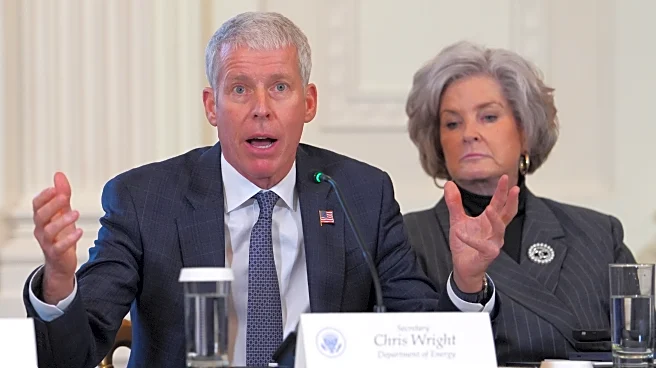What is the story about?
What's Happening?
Walmart CEO Doug McMillon has reported that the company is experiencing increasing costs due to tariffs, which are expected to continue into the third and fourth quarters. Despite these pressures, Walmart's second quarter revenue grew by 4.8% year over year, reaching $177.4 billion. The company has been able to keep prices low for as long as possible, although some discretionary products have seen price increases, leading to a moderation in units as customers switch to other items or categories. Walmart continues to attract higher-income shoppers, and its e-commerce sales have grown significantly, with a 25% increase globally and 26% in the U.S.
Why It's Important?
The rising costs due to tariffs are significant as they affect pricing strategies and consumer behavior. Walmart's ability to maintain low prices amidst these pressures is crucial for its competitive edge, especially as it attracts higher-income shoppers. The gradual impact of tariffs has led to muted behavioral adjustments by customers, but the ongoing cost increases could lead to more noticeable changes in consumer spending patterns. This situation highlights the broader economic challenges faced by retailers in managing tariff-related expenses while striving to maintain market share and profitability.
What's Next?
Walmart expects the cost pressures from tariffs to persist into the next two quarters. The company will likely continue to focus on creative pricing strategies to mitigate these impacts and maintain customer loyalty. As tariffs introduce uncertainty, Walmart's approach to balancing cost management with consumer value will be critical in navigating the evolving retail landscape. Stakeholders, including analysts and investors, will be closely monitoring Walmart's performance and strategic decisions in response to these challenges.
















